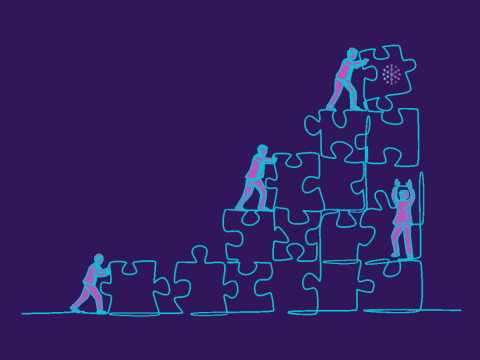As we age, our cognitive abilities decline, and many of us may experience memory loss, dementia, or neurodegeneration. However, research shows that some individuals are resilient to the ravages of time and remain cognitively intact even after reaching 100 years of age.
What if we could evade the aging process, resist genetic risk factors of cognitive decline, or even reverse aspects of brain aging altogether?
The Knight Initiative for Brain Resilience seeks creative and bold proposals from Stanford research and clinical faculty with PI eligibility that have the potential to generate paradigm-shifting insights into healthy brain aging and resilience against cognitive decline and neurodegenerative disorders.
Application and eligibility information
"About 1 in 10,000 individuals reaches age 100 cognitively unscathed — seemingly resilient to the effects of time. The Phil and Penny Knight Initiative for Brain Resilience seeks to emulate this sidestepping of the aging process and raise the hope of reversing brain aging altogether. "
— Tony Wyss-Coray, Director, Knight Initiative for Brain Resilience
Catalyst Grants Application
Application deadline: April 22, 2024
Please review the application and eligibility information before applying. In brief:
- Stanford research and clinical faculty with PI eligibility (UTL, MCL, or NTL-research appointments) may apply
- Previous Innovation or Catalyst award PIs are only eligible to submit as a Co-PI on this round
- Applicants may request up to $500,000 in direct costs over a 2-year duration
Funded Catalyst grant projects
Towards rescuing diverse forms of proteinopathies by induction of autophagic flux
Current treatments for neurodegenerative disorders (proteinopathies) offer limited efficacy and typically target specific genetic forms. The goal of this research project is to discover targets shared across proteinopathies and advance the development of early diagnostic/prognostic tools and disease-modifying pan-proteinopathy approaches.
Clinically translating ultrasonic CSF clearing to enhance brain resilience
Recent data suggest that increased circulation of cerebrospinal fluid (CSF) to clear the brain and spinal cord of waste is associated with improved outcomes in aging and recovery from brain injury, suggesting that inducing CSF clearing could enhance brain resilience. However, a therapeutic modality for directly inducing CSF clearing has not been available.
Myelin – an untapped target for preventing or reversing brain aging
Myelin, traditionally thought of as the brain's electrical insulator, has emerged as an active and dynamic regulator of brain functions including neuroprotection, learning, and memory. Myelin dysfunction and loss is increasingly found to be central to brain aging and neurodegenerative diseases including Alzheimer's.
Unconventional IRE1 activation for promoting brain resilience
It has been appreciated for decades years that cognitive decline and dementia are frequently accompanied by changes that cause proteins within brain cells to clump abnormally into structures called neurofibrillary tangles. Resilient brains are better able to resist this process but the underlying mechanisms for why individuals’ brains are more or less resilient are not fully understood.
